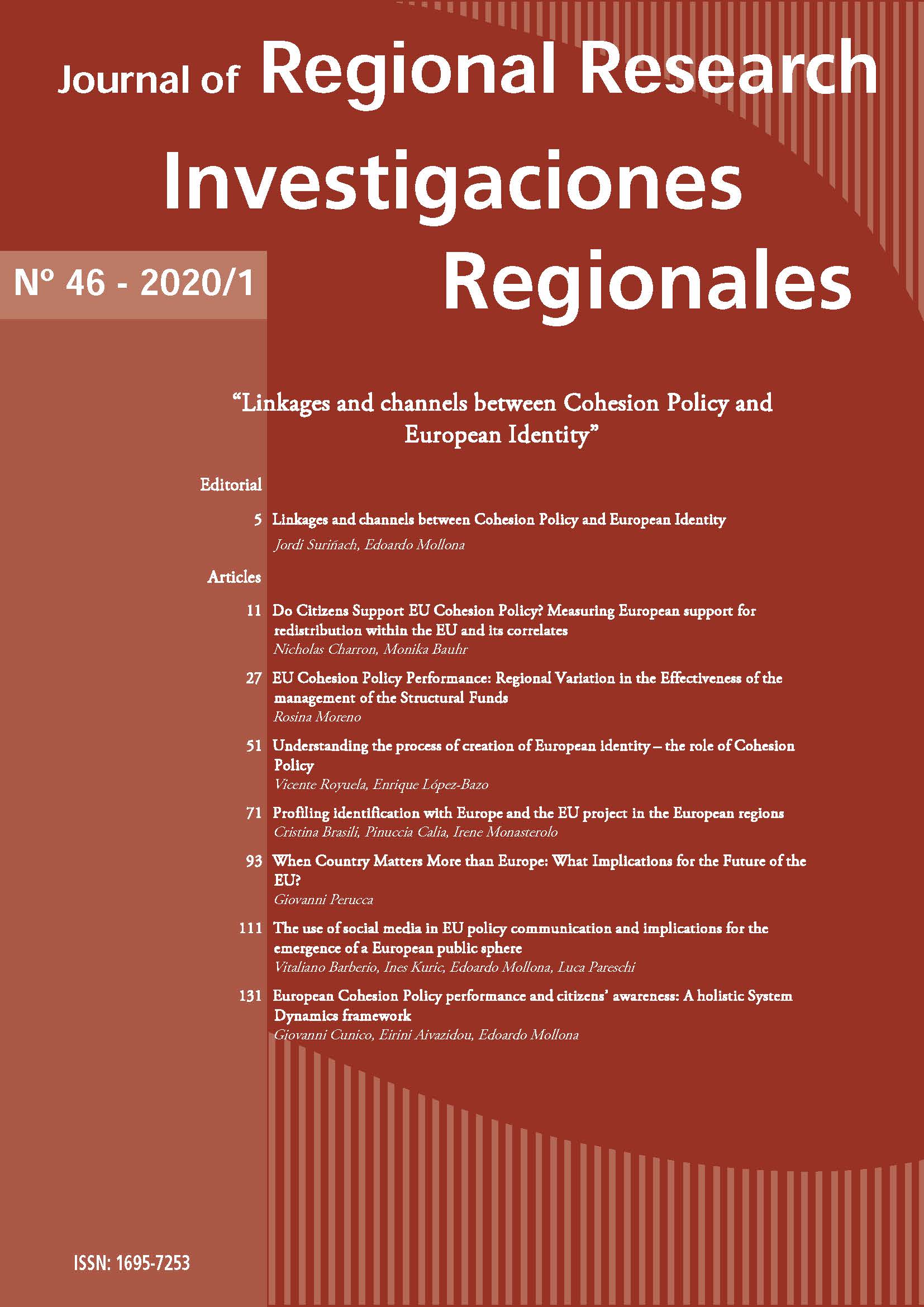Understanding the process of creation of European identity – the role of Cohesion Policy. A review.
DOI:
https://doi.org/10.38191/iirr-jorr.20.003Resumen
This paper reviews the theoretical arguments provided by the extant literature for understanding the process of creation of a European identity. We discuss the grounds of mechanisms and determinants driving citizens’ identification with Europe, stressing the role of the territorial dimension on European identity formation. More precisely, our focus is on the literature that have considered the link between European identity and EU policies that influence the citizens’ socio-economic conditions, in general, and Cohesion Policy in particular. This is a major policy within the EU that accounted for some 350 billion euros in the 2007-2013 programming period, about a third of total EU budget. Consequently, it is expected to determine the way citizens identify with the European project, both in the regions more and less benefited by the policy. The study also considers arguments supporting a sort of urban-rural divide in European identity, which could interact with the influence of the Cohesion Policy. Initial descriptive evidence on these links is provided based on results from a comprehensive survey for 15 EU member states.
Descargas
Archivos adicionales
Publicado
Número
Sección
Licencia
Aquellos autores/as que tengan publicaciones con esta revista, aceptan los términos siguientes:
En el momento de aceptar la publicación de sus artículos en Investigaciones Regionales / Journal of Regional Research, los autores acceden a utilizar la licencia Creative Commons CC BY-NC. IIRR/JRR es una revista abierta que permite a los autores retener el máximo control sobre su trabajo. Los autores aceptarán utilizar la licencia Creative Commons Attribution-NonCommercial. Esta licencia permite a cualquier persona copiar y distribuir el artículo con propósitos no comerciales, siempre y cuando se atribuya adecuadamente la atribución del trabajo a la revista y a los autores.


